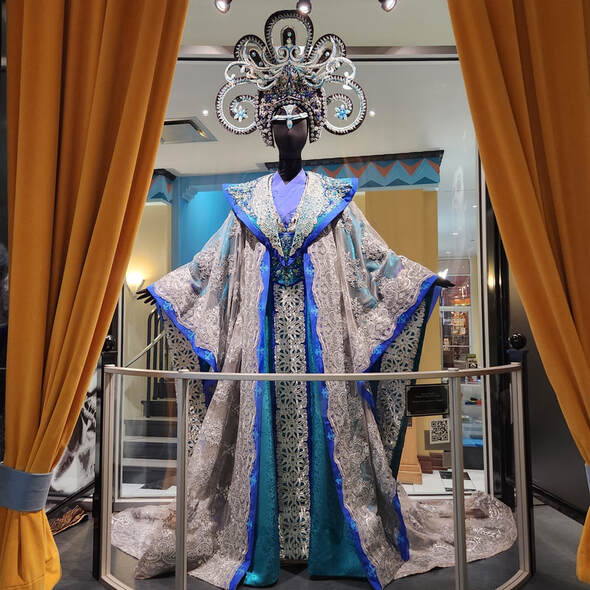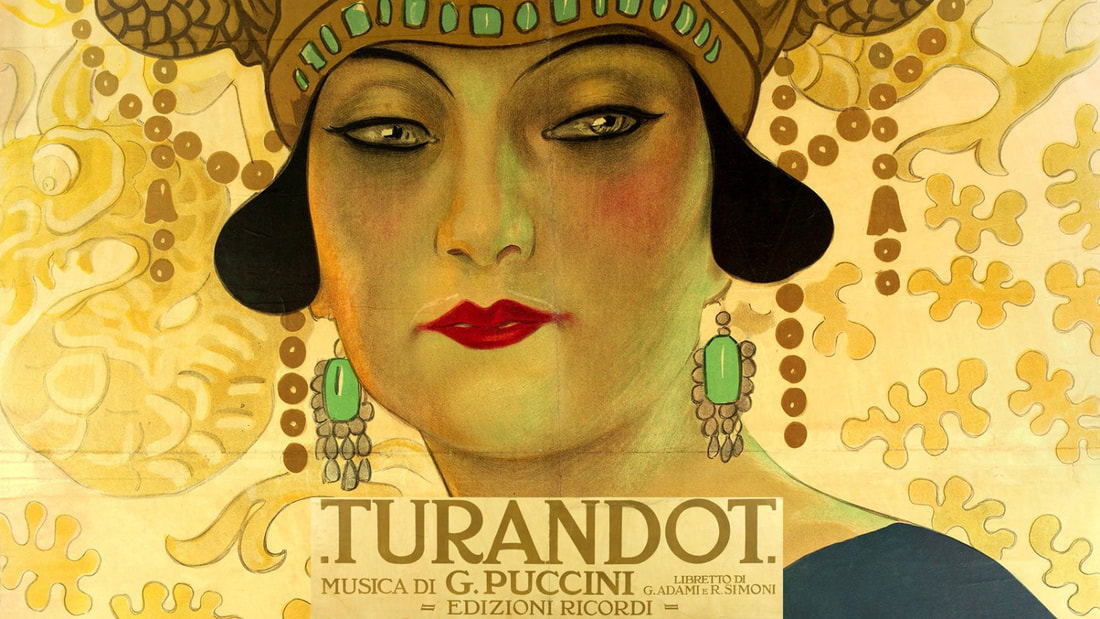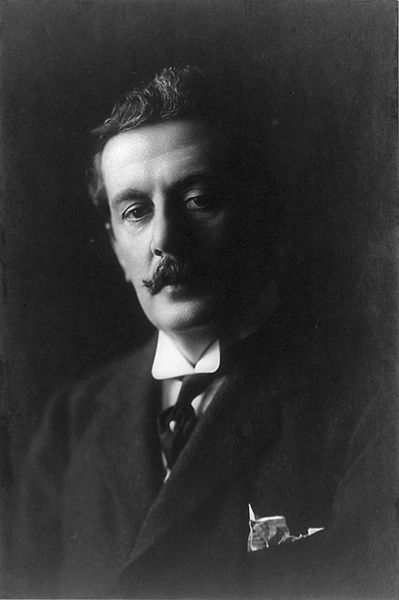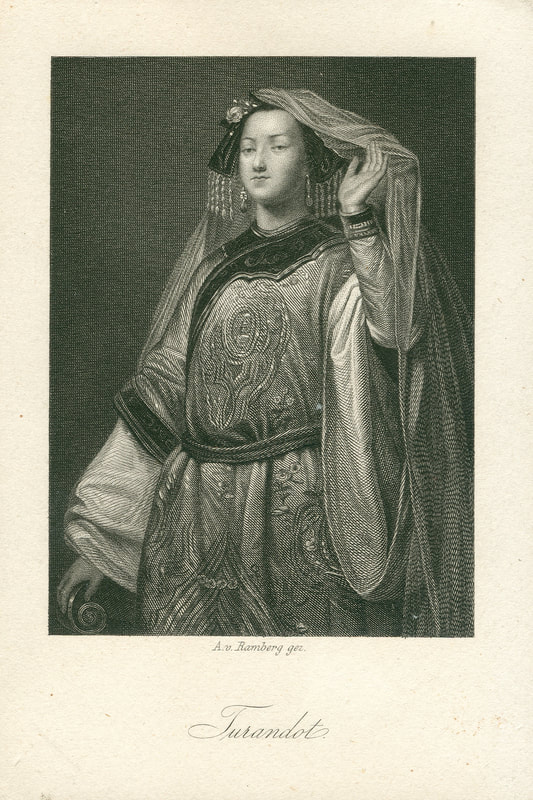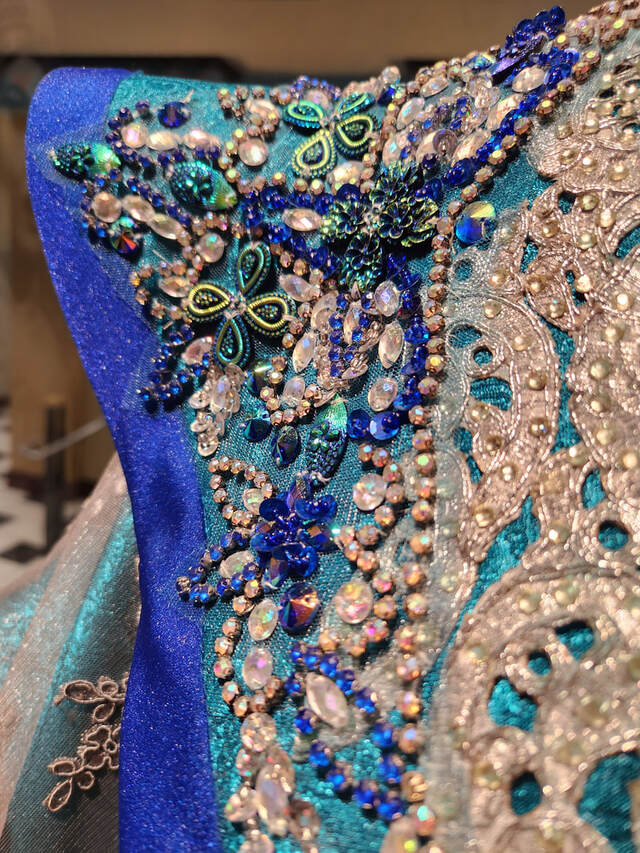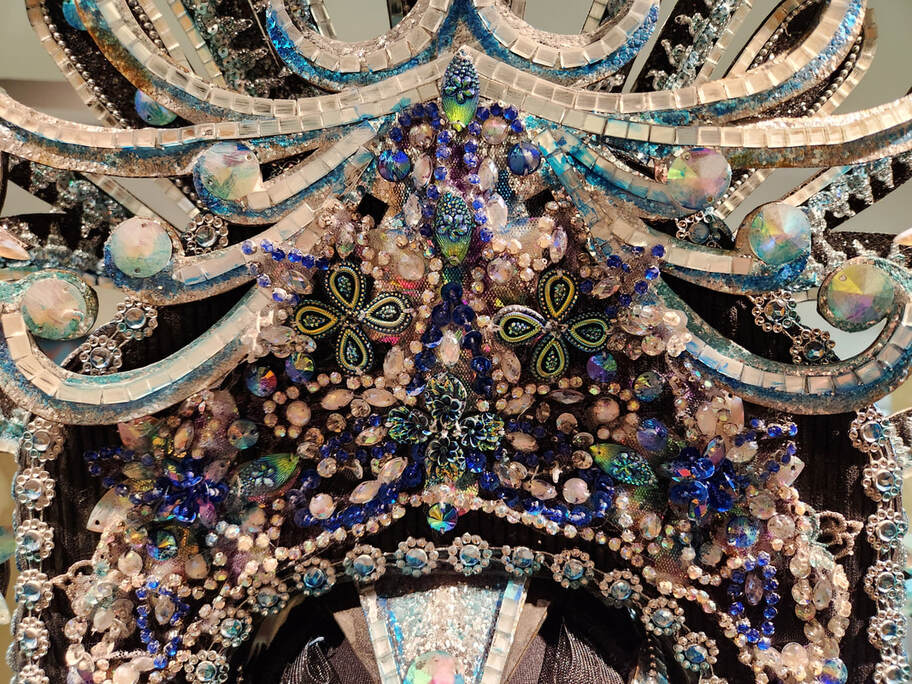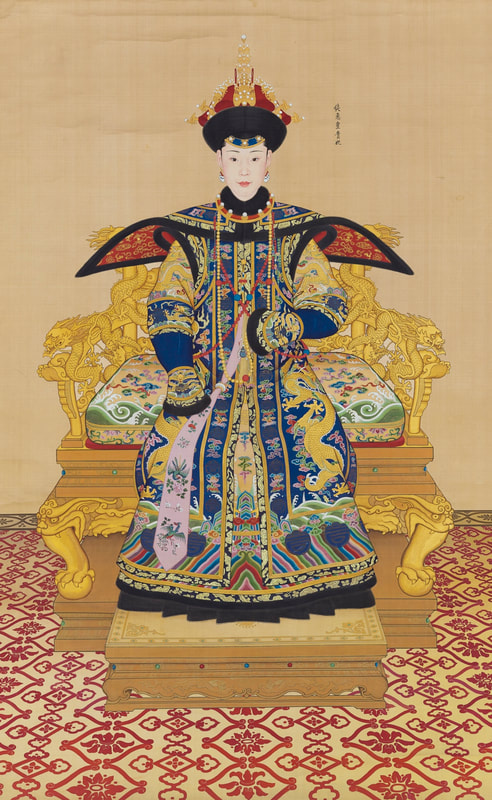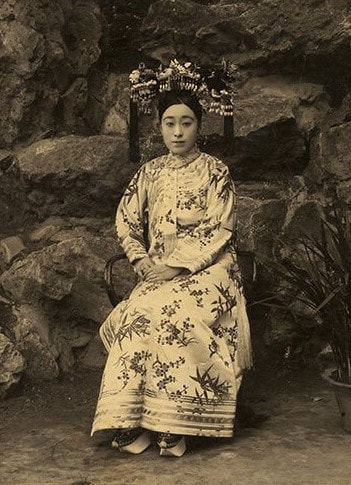Princess Turandot
Designed by Howard Tsvi Kaplan
Production: Giacomo Puccini's Turandot
Collection of Sarasota Opera Association, Inc.
Production: Giacomo Puccini's Turandot
Collection of Sarasota Opera Association, Inc.
About The Character
Turandot was the last opera composed by Giacomo Puccini (1858-1924). He died in 1924, leaving the work unfinished. Turandot would not premiere at La Scala in Milan until nearly two years later. The final orchestration was created by Franco Alfano (1875-1954) using notes and sketches left by Puccini. The entire opera, however, had been nearly completed at the time of the composer’s death.
The opera is set in an imaginary time period in China’s imperial past. The story is decidedly tragic but has hints of fairy tale elements such as those found in the books written by the Grimm brothers. Turandot is an unwed princess who executes any suitor who cannot answer three riddles. When Prince Calaf arrives, and successfully answers the three riddles, Turandot refuses to marry him. The prince meets her obstinance with a challenge of his own. If Turandot can guess his name before the sun rises on the following day, Calaf will allow himself to be executed.
Oddly, but perhaps not surprisingly for the period, the cultural references in Turandot are muddled. The name Turandot comes from Persian poetry. Turan is a region of ancient Persia, and dokhtar means daughter, or literally little girl, in Persian. Prince Calaf also has a decidedly middle-eastern ring as caliph was the name used to describe the spiritual successors of Muhammad.
Puccini’s opera was inspired by a play of the same name written in 1801. Despite the cultural inconsistencies of the storyline, Puccini wanted to incorporate musical authenticity into the composition. The final score includes native instruments such as gongs and the inclusion of several traditional Chinese melodies.
About the Costume
The costume seen here is a fantastic imagining of the grandeur of royal Chinese garments. It is, in fact, several layers weighing together nearly 20 pounds. It begins with a traditional Asian undergarment that is overlapped across the breast and tied. Over this goes the richly-colored teal, damask robe, which has been accented with a lavish silver brocade running down the middle. The robe is then belted and laced from behind just below the chest.
Over these layers goes the sheer silver robe with applique work and a train that extends several feet in circumference at its full length. Lastly, a shoulder piece is hooked to small clasps hidden among the folds and beadwork. The overall effect is an imposing and complex costume that, indeed, gives the character the aloof regal look befitting the daughter of an emperor.
The headdress for this costume is heavy and the performer wearing it must move with deliberation. For this installation, a steel rod was inserted into the neck and body of the form to support the weight.
Inspiration
One of the benefits of a fictional setting for any story is creative freedom. Since Turandot takes place in a mythical China, the costuming for the production frequently takes liberties and often draws from multiple cultural sources. Turandot is the daughter of a fictional emperor. In imperial China, members of the royal household would have had a variety of garments. Formal dress would have included brightly-colored silks and woven fabrics, fine embroidery and beadwork.
A wealthy Chinese woman in pre-Republic times, would typically have worn her long hair up in an elaborate arrangement adorned with jewels and textiles. The headdress that is part of this costume was made to resemble the complex hairstyle of an imperial Chinese woman. Below is a photograph of Der Ling, lady-in-waiting to the Qing Empress Dowager Cixi. You can see that her hair is ringed and jeweled in a complicated arrangement that clearly shows her status as a member of the royal household.
Nessun Dorma
One of the most famous and popular operatic songs every written is Nessun Dorma. In the 20th century, the aria was made popular by Luciano Pavarotti and became an unofficial anthem of world-wide soccer tournaments. Nessun Dorma means "None shall sleep." It is a passionate aria from the third act of Turandot sung by Calaf as he waits to see if the princess will discover his name before dawn.

